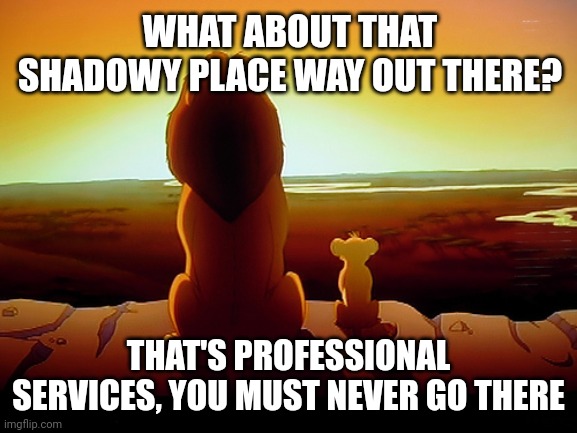
Ah professional services. The typical #prodmgmt rejoinder whenever anyone mentions a specific client request. How dare anyone request things! None of us really want to go down this route, but what about when we have to?
🧵
🧵

It's no secret why we don't want this. Specific client requests are rarely validated, over-specific, create tech and product debt, and can make products into a messy pile of features. And above all else there's the opportunity cost
However, sometimes you're going to get bullied by a client several orders of magnitude bigger than you, or get pressure from the top to accommodate such a request. There can be good & bad reasons for this, but let's just assume you need to do it. How? Some thoughts...
Treat as discovery input. It's quite possible there's an unmet need here. Do a little digging. Speak directly to the customer/prospect & do the JTBD dance. Ask yourself... Is there a valuable, generic feature I can make out of this? Remember to speak to other customers too!
If you have to do this work, everything's an OR not an AND. Be specific about what's not getting done. The naive view is that protects the roadmap and the request goes away. That won't (always) happen but steer clear of "it's only" or "it's just" type conversations
MVP the heck out of it. Work out the smallest version of that thing that could claim to answer the client request with a straight face, build that & then pause. Maybe they'll be ok with whatever you built, maybe there'll be more rounds, but don't just build everything for months
But who's doing the work? @RichMironov has described "bespoke consultancy at product rates"... You don't want to do that. On the other hand, do you really want to take explicit consulting fees for client work? Doesn't that make it worse? Maybe
It's common to see people recommend allocating X% of time to custom requests. This seems like a neat option, better than random chaos. My problem here is that it's easy to try to push outside of X and anything with % allocations can quickly add to more than 100
Another option is to build a separate professional services team. They're either developing stuff alongside the product team, or hopefully just doing configuration customisations. This is neater and protects product time but if you don't have enough work for them it's inefficient
A great option if it's more about bespoke integrations & customisation is to strike up a relationship with an integration partner. They get trained in your stuff and can go out and do all the shoveling for you! You get a cut + the recurring license money. I really like this one
Whatever you do, you need to track success of these "initiatives". Did you actually win the sale? What other stuff didn't happen? How did that impact product health? What happened to retention / satisfaction etc? You need to represent the true cost of custom work
But on the other hand, you haven't failed because you had to do custom work. Maybe you missed something in discovery (or maybe your discovery was just "whatever our first clients asked for"). You want to get ahead of the curve on this but we work for businesses not books
@threadreaderapp unroll
• • •
Missing some Tweet in this thread? You can try to
force a refresh



